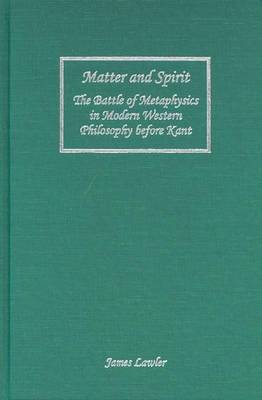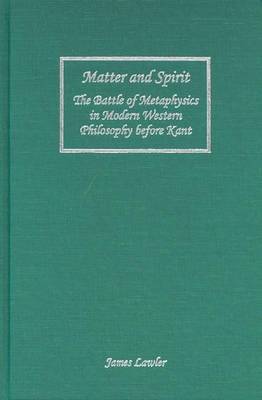
- Afhalen na 1 uur in een winkel met voorraad
- Gratis thuislevering in België vanaf € 30
- Ruim aanbod met 7 miljoen producten
- Afhalen na 1 uur in een winkel met voorraad
- Gratis thuislevering in België vanaf € 30
- Ruim aanbod met 7 miljoen producten
Zoeken
€ 142,95
+ 285 punten
Omschrijving
This narrative shows how the contours of moral and political philosophy in the seventeenth and eighteenth centuries were shaped by Kant's two distinct philosophical responses to the results of modern science. This history of early modern Western philosophy takes its inspiration from Kant's claim that the battle between the metaphysics of matter and that of spirit is the principal axis around which modern philosophy up to his time, in all its aspects, has revolved. The empiricist-materialist trend that dominates in England is first examined in the progressively unfolding works of Hobbes, Locke, Berkeley, Hume, and Adam Smith. A contrasting and competing dialectic develops in the rationalist/spiritualist trend in the continental philosophy of Descartes, Leibniz, and Rousseau. Framing this history is the background context of the philosophy and science of Aristotle and the challenges to the traditional paradigm presented by the revolutionary sciences of Copernicus, Galileo, and Newton. James Lawler is Professor of Philosophy at the State University of New York at Buffalo.
Specificaties
Betrokkenen
- Auteur(s):
- Uitgeverij:
Inhoud
- Aantal bladzijden:
- 584
- Taal:
- Engels
- Reeks:
- Reeksnummer:
- nr. 13
Eigenschappen
- Productcode (EAN):
- 9781580462211
- Verschijningsdatum:
- 25/05/2006
- Uitvoering:
- Hardcover
- Formaat:
- Genaaid
- Afmetingen:
- 157 mm x 236 mm
- Gewicht:
- 929 g

Alleen bij Standaard Boekhandel
+ 285 punten op je klantenkaart van Standaard Boekhandel
Beoordelingen
We publiceren alleen reviews die voldoen aan de voorwaarden voor reviews. Bekijk onze voorwaarden voor reviews.











